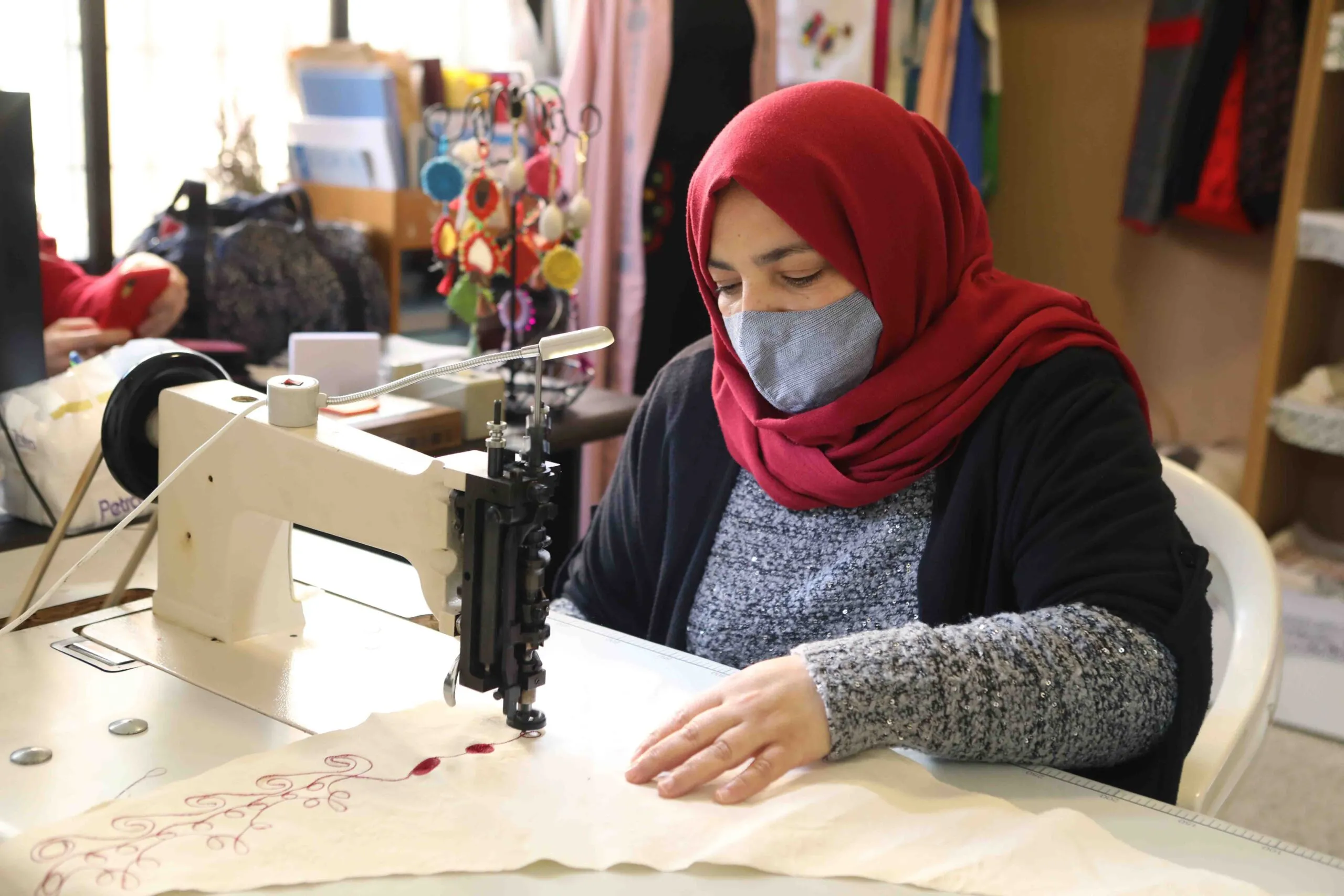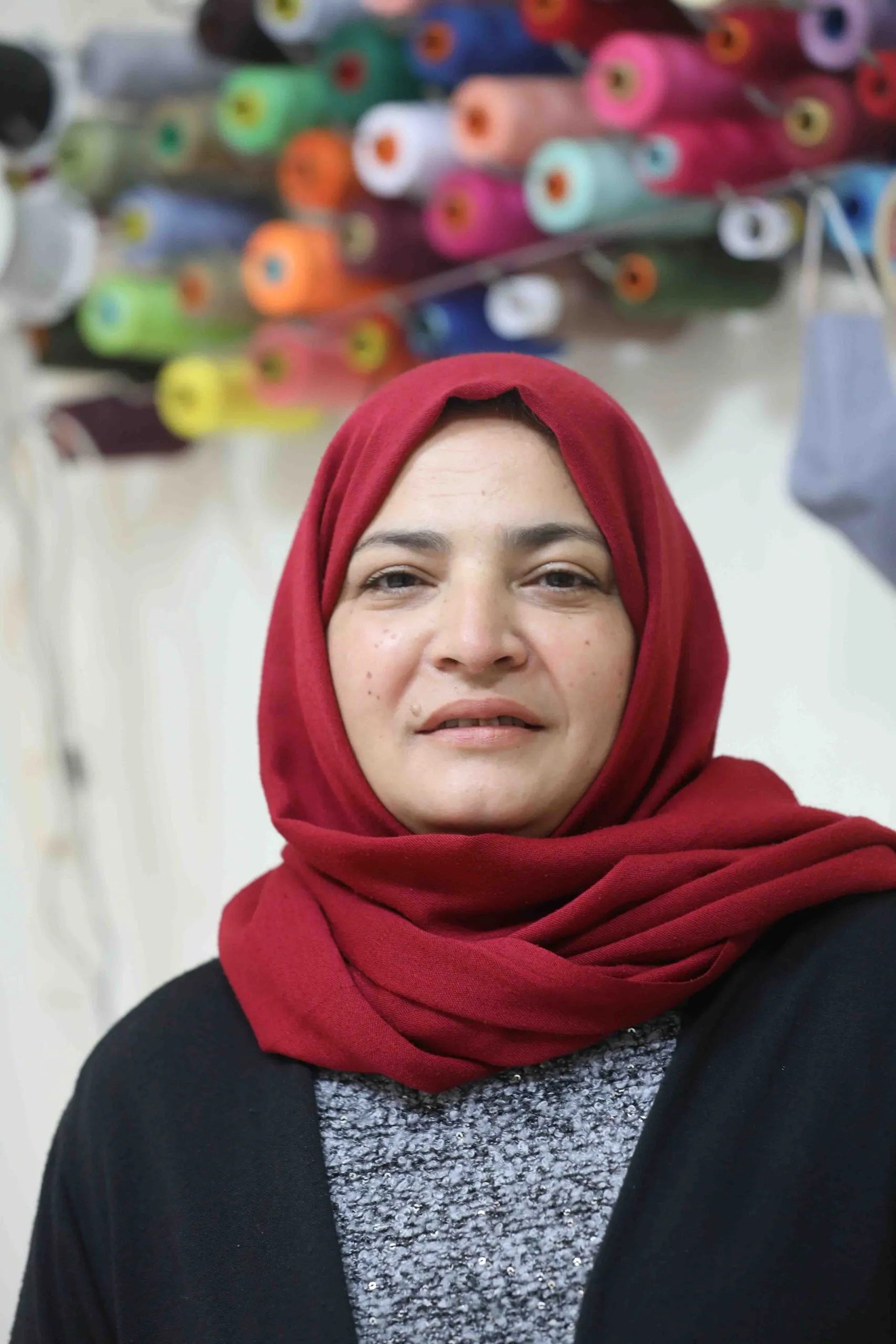“Every time I sit in front of a sewing machine, I remember my mother-in-law. She was an expert in the so-called Aghabani embroidery, a machine-based technique specific to Syria, mainly Aleppo, my hometown that I miss terribly,” says 50-year-old Mona Zeinati, a mother of four.
It has been nine long years since Mona left her home in Syria. “I fled with my husband and four children, just after the beginning of the war. It was so hard for me, but I am much better now than when I first I arrived in Lebanon, despite the economic crisis the country is facing,” she says.
“I remember my loneliness when I arrived here. For over a year, I was getting lost in the streets and did not have contact with any neighbors. I was afraid of everything and I simply almost never went out. I did not dare leave my new house that was very different from our family home in Aleppo. I was alone and scared, and I could not afford to do anything. I could not even send my daughters to school.”
“In Aleppo, the city I come from, we say, ‘When you have a craft in your hand, you will never go hungry.'”
And then after a year, things started to change. Mona and her family moved to a house closer to town.
“I plucked up the courage and joined the NGOs that gave courses to women to help them learn a trade. I found one that taught embroidery and printing on fabrics and the teacher thought I was gifted and encouraged me. She too was from Aleppo, a refugee like me, but she was a great artist,” she says.


